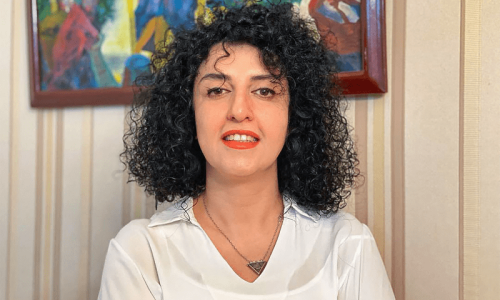Facebook complies with Turkish court order, starts censoring Prophet (PBUH) images

Complying with a Turkish court order, Facebook has started to censor pictures of Prophet Muhammad (PBUH), deemed hurtful to a majority of Muslims living in Turkey, said a report published on The Washington Post.
The decision comes barely weeks after Facebook CEO Mark Zuckerberg posted an unrelenting statement on his profile declaring his unwavering support for the right to free speech and solidarity with the French satirical magazine Charlie Hebdo, which suffered a deadly attack that took 12 lives, most of whom were cartoonists. He included the #Jesuischarlie hashtag in his post to show support for the slain victims.
On Sunday, a Turkish court had ordered Facebook to block a number of pages deemed insulting to the Prophet Muhammad (PBUH), threatening to stop access to the whole social networking site if it does not comply. The country is believed to have 40 million members on Facebook.
Take a look: Turkish court orders Facebook to block pages insulting Prophet (PBUH): media
Facebook’s latest compliance with the court order to ban offensive images is seen by some as a contradiction to some parts of Zuckerberg’s statement. In particular, a part of his testimonial read:
“Facebook has always been a place where people across the world share their views and ideas. We follow the laws in each country, but we never let one country or group of people dictate what people can share across the world.”
Some believe that Facebook tends to release promising statements as a strong proponent of free speech, but is fails to (voluntarily or involuntarily) live up to its word, as past records clearly indicate.
Earlier in December, Facebook had blocked a page of the Russian president Vladimir Putin critic Alexei Navalny on the request of Russian Internet Regulators.
Facebook is also occasionally criticised for taking down pages erroneously. A petition against the allegedly inaccurate censorship by Facebook of the International Campaign for Tibet is currently circulating online and has been signed over 20,000 times already.
Some weeks ago, Facebook had also issued an apology for wrongfully taking down the page of popular Pakistani actor and activist Hamza Ali Abbasi. In his apology, the Vice President of Global Operations and Media Partnerships for Facebook Justin Osofsky had said: “We try to do our best, but sometimes make mistakes.”
Read: Facebook apologises, says removal of Hamza Ali Abbasi status was mistake
Turkey houses a vast potential audience for social networking websites although its government is often not in agreement with the content on Facebook. As per Facebook’s latest transparency report which focused on the first half of 2014, Turkey demanded Facebook to censor 1,893 pieces of content in the six month period, which is the second most of any country.
Many of the censorship requests from Turkey stemmed from local laws that prohibit any vocal or written disrespect against the country’s founder Mustafa Kemal Ataturk, or the current president Recep Tayyip Erdoğan.
Being a global company, Facebook is liable to obey the laws of each country it operates in. It maintains that it has been successful in responding to the censorship requests of each country, provided that they they meet what the company calls a “very high legal bar.”
The report quoted the BBC as saying that Facebook has banned an indeterminate number of pages that it deems disparaging against Prophet Muhammad (PBUH) and yet this decision has stirred a new controversy whether Facebook actually possesses the freedom of speech that it ardently professes.













































